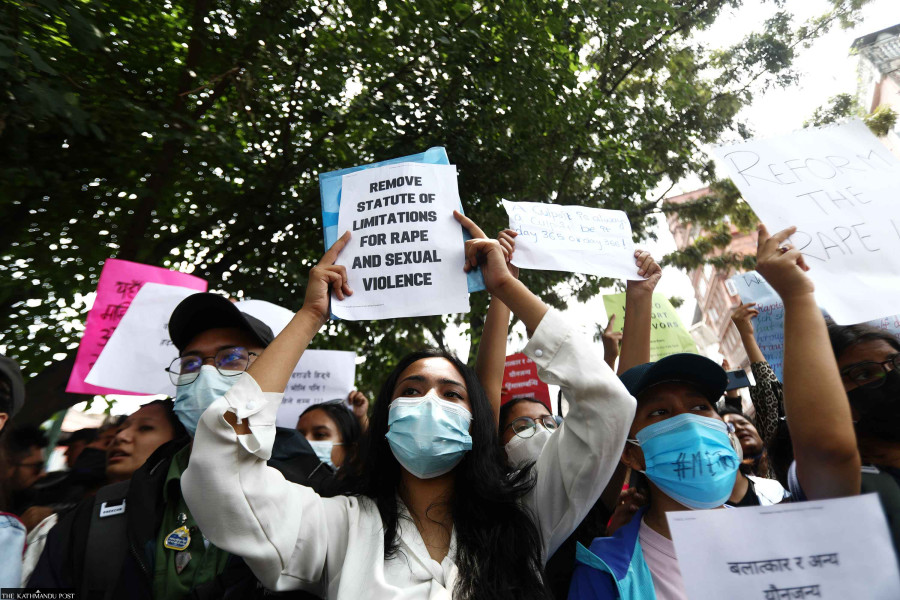Originally published by The Kathmandu Post.

Nepal must urgently remove the statute of limitations on cases of rape and other sexual violence through amendments as it continues to be a barrier for survivors in access to justice, Amnesty International said on Thursday.
Issuing a statement, the international human rights organisation has also expressed its solidarity with the ongoing protests demanding swift justice for victims of sexual violence and reform of rape laws in Nepal.
People have been taking to streets ever since an aspiring model on May 18 took to social media to share her harrowing experience of rape for months eight years ago at the hands of Manoj Pandey, a pageant organiser. She was 16 at that time.
Under the 2017 penal code of Nepal, complaints of rape must be filed within one year from the date of the crime. And this statute of limitations has become a barrier to justice for survivors.
“This is grossly restrictive as it prevents many victims from accessing legal remedy effectively, in particular, victims of child rape,” reads the statement.
Amnesty International says the grossly restrictive and inadequate length of limitation fails to take into account the stigma that women and girls face when reporting cases of sexual and gender-based violence and prevents them from accessing legal remedy, therefore, fosters impunity for such crimes.
“Time and again we have seen courageous survivors are denied justice because of the outdated and harmful one-year limit for filing rape complaints. The current provision is grossly restrictive, unfair and unmindful of the state the survivor might be in. In its current form, such provisions allow many perpetrators of rape to get away with their crimes,” Yamini Mishra, South Asia Regional Director for Amnesty International, is quoted as saying in the statement.
In 2008, the Supreme Court of Nepal issued a directive asking the government to amend laws to adequately expand the then 35 days of statute of limitations taking into consideration the victim’s psychological status, time required for investigation, and the existing barriers to justice.
The provision of a one-year statute of limitations in the new 2017 penal code remains insufficient and continues to deny legal remedy for victims who file complaints after one year.
In 2008, the United Nations Office of the High Commissioner for Human Rights (OHCHR) representative noted that “the statutory limit is often used as an excuse by police for not filing a complaint in cases of rape.”
“The government must take swift measures to review the legislation to bring it in line with international standards, including ensuring gender neutral references in the law for perpetrators and victims,” said Mishra. “Authorities must also ensure prompt investigations and prosecution of allegations of rape and other sexual violence and sufficient access to justice and reparations for the survivors while ensuring their protection during the investigation and trial.”
“ The authorities in Nepal must not ignore the demands of women’s rights activists for this important change to strengthen survivors’ rights in the country,” Mishra added.

